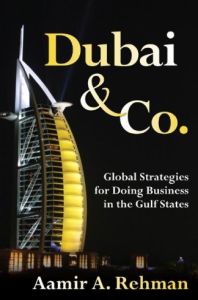Join getAbstract to access the summary!

Join getAbstract to access the summary!
Aamir A. Rehman
Dubai & Co.
Global Strategies for Doing Business in the Gulf States
McGraw-Hill, 2007
What's inside?
If you want to do business with the Gulf states, a cluster of very prosperous nations, start here.
Recommendation
Little heard-of, but increasingly important, the six nations known as the Gulf States are using their oil wealth to become global players in world finance. In turn, multinational corporations are recognizing that these nations should become integral parts of their expansion plans. All this makes author Aamir A. Rehman’s work important to any business investigating this marketplace. He provides a cultural, economic, historical, political, demographic and geographic overview of this area, while spelling out the pros and cons of doing business there. Through this book repeats some key sections, Rehman keeps advancing his presentation, so any intrepid reader will have a strong foundation for future business plans. Think of this as a business guidebook to the region. If you are investigating an expansion in the Gulf States, getAbstract would suggest that an investment in this book could generate large returns.
Summary
About the Author
Aamir A. Rehman is an expert in global corporate strategy. He has worked as an advisor in the development of strategies for multinational companies based in the United States, Europe, the U.A.E., Saudi Arabia and the broader Middle East. A graduate of the Harvard Business School, he formerly served as global head of strategy for a business unit of the leading bank HSBC, and worked for the Boston Consulting Group.
















Comment on this summary